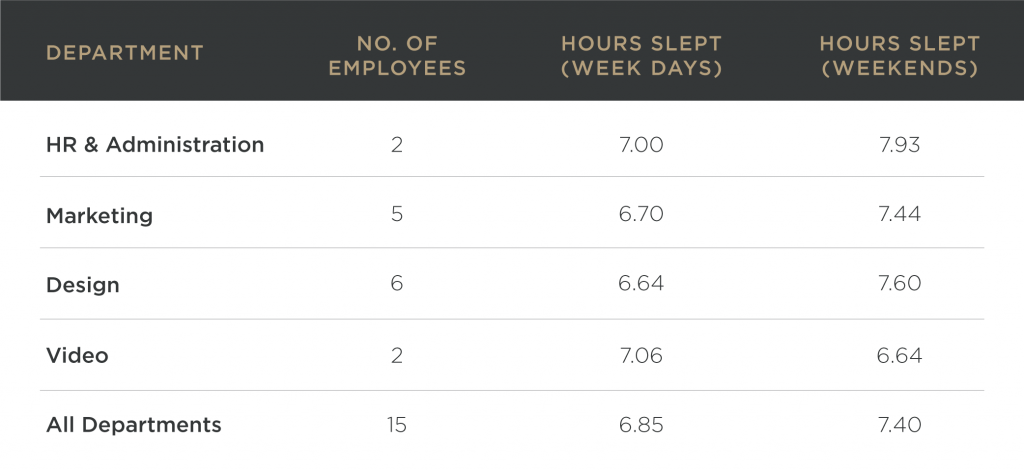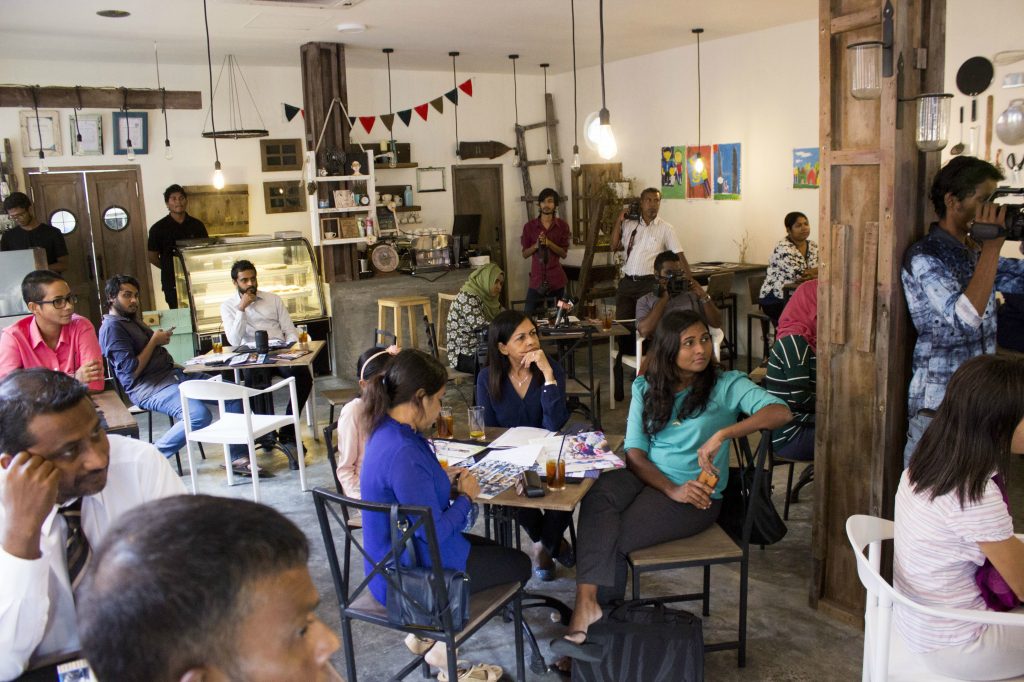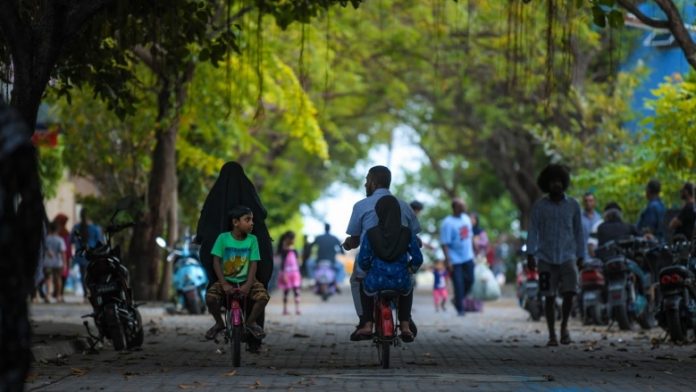Orca Media Group has recently conducted a 30-day sleep research in a typical private company in the Maldives with an employee base of 15. The aim was to track the average sleep and wake times, as well as the duration of sleep for employees.
Results revealed that most slept for about 6 to 7 hours, with some reaching 8 or more, others 4 or less. One notable observation was that many individuals, having slept less than 8 hours throughout the week, attempted to recover sleep during weekends.

Unfortunately, the practice of sleeping in during weekends has no scientific basis, according to Matthew Walker — a scientist and professor of neuroscience specializing in the impact of sleep on health and disease, and famously known for his book Why We Sleep. According to Walker, it is impossible to reverse the damage caused by losing a night of sleep or even a few hours.
Chronic loss of sleep can lead to:
- weakened immune systems
- increased risk of conditions like cancer and Alzheimer’s
- reduced fertility
- greater vulnerability to mental health issues
- poor emotional regulation and decision-making
All of this can have several implications on the productivity of employees, as the speed and quality of work done is inversely proportional to the amount of sleep deprivation experienced by a person. However, this is not the only negative impact experienced within the workplace. Reduced alertness due to lack of sleep can even be dangerous in physically demanding jobs like construction work or professions that involve the lives and livelihoods of many people, such as healthcare. Additionally, weakened immune systems make it easier for infections to be transmitted around the workplace, affecting not just the sleep-deprived individual but those around them.

There are a number of factors that contribute to sleep deprivation. One is ineffective time management, as work or other activities cut into time that would usually be spent sleeping. Another factor is caffeine intake, particularly during evening hours. Caffeine has a half-life of 5-7 hours — the amount of time taken to reduce its concentration in the body by half. Even if its half-life is reached by bedtime, there will be enough caffeine remaining in the body to disrupt sleep for the remainder of the night.
Blue-light based LEDs, including screens and modern energy-saving light bulbs — all of which are essential to most working individuals in the Maldives — can also delay sleep onset. As blue light prevents the rise of melatonin in the hours following sunset, it can make it harder to fall asleep.
Finally, most employees adhere to a 9-5 workday — an achievable feat for early bird chronotypes, or those who are naturally geared to be more alert earlier in the day. Unfortunately, the 9-5 workday can reduce the sleep quantity of night owl chronotypes, as they tend to fall asleep later than early birds. This leaves them chronically exhausted due to long-term sleep deprivation, which causes them to underperform at work, as they are usually too tired to reach their full potential.

However, there are interventions that can minimize risks to individuals and improve their mood and productivity. Some personal measures include establishing regular sleep and wake times (even on weekends); providing oneself a sleep opportunity of more than eight hours; using night mode on screens, and mood lighting during the evening to reduce blue light exposure; and reducing caffeine intake later in the day. At an organizational level, employers may introduce flexible work hours that account for the natural chronotypes of each employee.
Thus, ensuring the well-being of employees by allowing them to get adequate sleep is important — not only for its own sake but also because it will improve productivity and enthusiasm in the workplace. While there are many factors that lead to inadequate sleep, it is important to regulate those within one’s control.



















